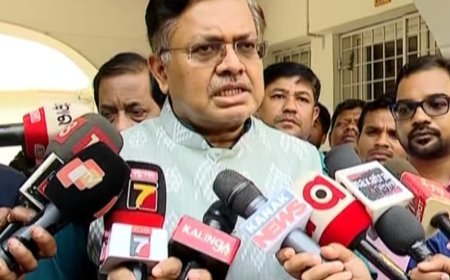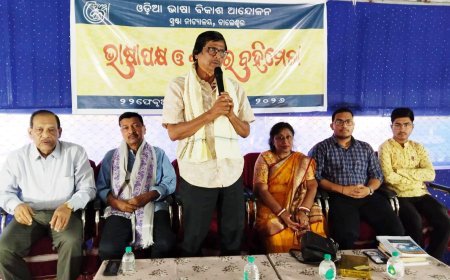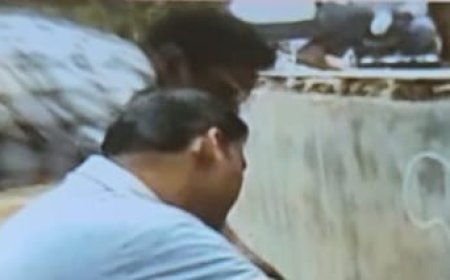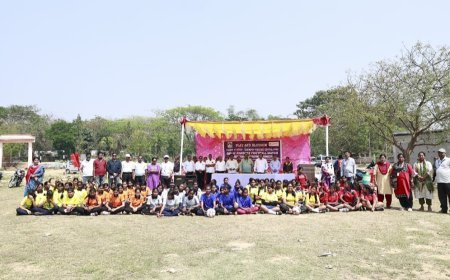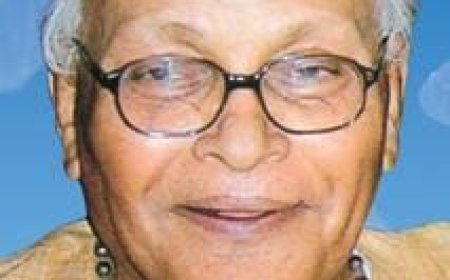Training Workshop for Health Workers Organized by Fakir Mohan University and District Health Society
• Effective communication and awareness are essential to save children’s lives, emphasized speakers
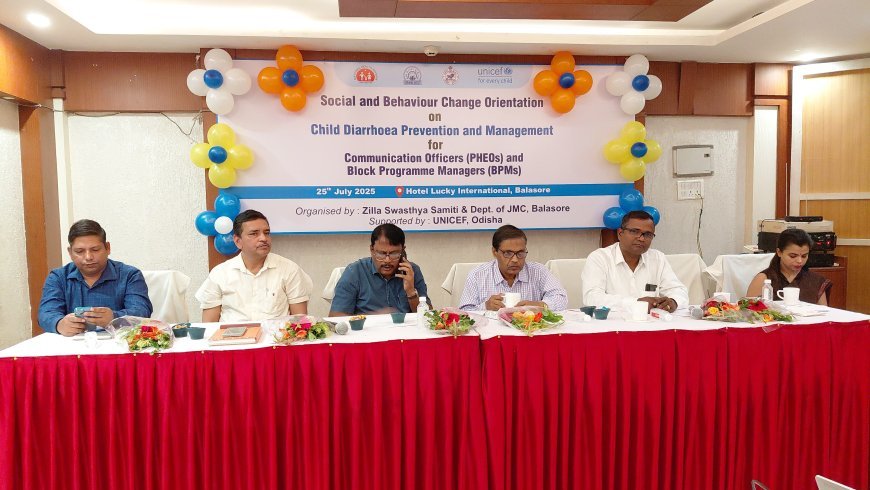
Balasore, 25 July (Krushna Kumar Mohanty): With the aim of safeguarding the lives of children affected by diarrhoea, a significant orientation program focusing on social and behavioral change was conducted at Hotel Lucky International in Balasore.
The program was jointly organized by the ZSS (District Health Society) and the Department of Journalism and Mass Communication, Fakir Mohan University, with the support of UNICEF Odisha. The training workshop focused on enhancing motivation, understanding the impact of diarrhoeal diseases, ORS-Zinc treatment protocols, and the ABC treatment model proposed by the World Health Organization (WHO).
The program commenced with a presentation by Dr. Paresh Chandra Nandi (ADPHO-FW), who outlined the objectives of the event and conducted a technical session on dehydration, emphasizing key aspects of the condition. Dr. Pradeep Kumar Kar (DPHO) also delivered a valuable address during the session.
Dr. Prabhat Kumar Behera, Chief District Medical & Public Health Officer, highlighted the importance of community engagement, preventive measures, and behavioral change in addressing child health issues.
On the occasion, Dr. Aditya Mahapatra, Additional Director (Child Health), shared an insightful and motivational address that included data-driven discussions and an interactive session.
Mr. Chakradhar Sahu, District Program Coordinator, UNICEF, emphasized the importance of hygiene practices in daily life, especially for remote communities. He discussed the effectiveness of awareness campaigns and diarrhoea control initiatives like IDCF (Intensified Diarrhoea Control Fortnight). He stated that proper communication and awareness are crucial to saving children’s lives.
Around 50 participants actively took part in the discussions and practical sessions, reinforcing the need for timely interventions and behavior change at the community level. Health officials stressed the importance of inter-departmental coordination and consistent resource distribution chains to tackle health issues effectively.
This initiative is considered a significant step toward building an informed and responsible team of healthcare workers, who will be committed to ensuring the safety and well-being of every child.
The program was smoothly conducted by Dr. Smiti Padhi (Faculty, Fakir Mohan University), and the vote of thanks was delivered by Mr. Pradeep Kumar (In-charge, ADPHCO).








